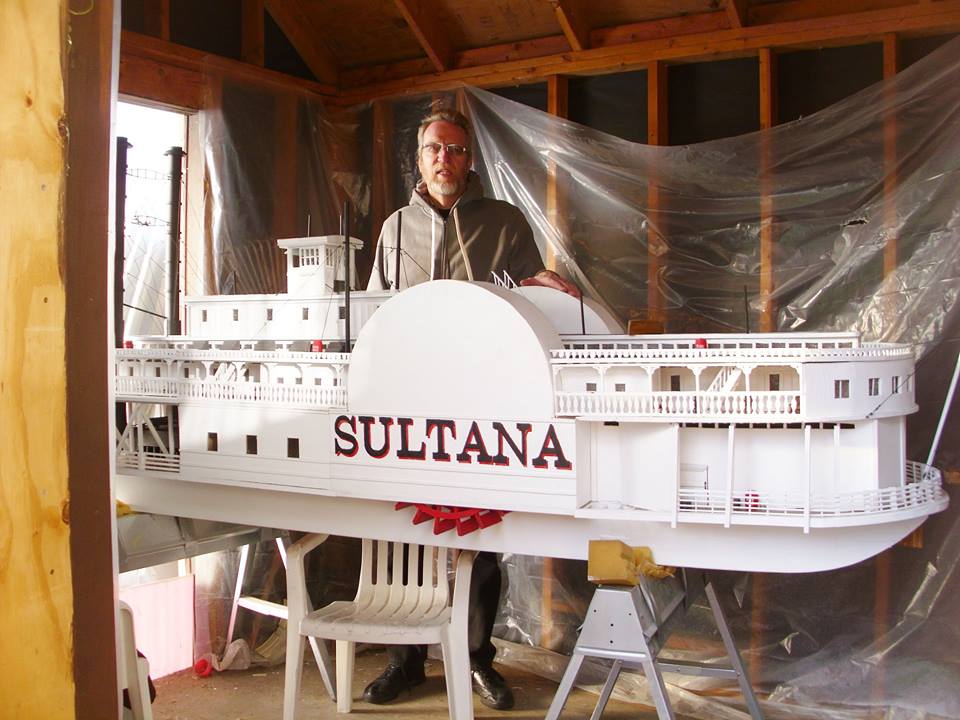In a little less than two months, the 153rd anniversary of the greatest maritime disaster in U.S. history will be commemorated. On April 27, 1865, at approximately 2:00 a.m., the side-wheel steamboat Sultana experienced catastrophic boiler failure while traveling north on the Mississippi River, just above Memphis, Tennessee. In the blink of an eye, the lives of approximately 2,400 persons were changed drastically, many for eternity.

Gene Salecker and model of the Sultana
These were predominantly Union soldiers, recently released from Confederate prison camps in Andersonville, GA and Cahaba, AL. Along with a number of civilian passengers as well as the boat’s crew, these men, women, and children faced an event impossible to comprehend. Wakened from sleep, some were hurled by the blast through the air into the icy river waters. Others, scalded by superheated steam, burned by the ensuing fires, or injured by flying debris, did their best to get off the sinking boat and into the flooded Mississippi, hoping to somehow be rescued. Almost half of those aboard died instantly or within the space of the next few hours or days. Those who survived the terrible calamity would remember it for the rest of their lives. Many would never speak of it again.
So why do we choose to remember this historical event?
Fortunately, thanks to the tireless efforts of innumerable people, there are now markers in a number of locations that speak of the disaster. In addition to many books on the subject, there are multimedia works of all kinds depicting this little-known tragedy. There’s even a museum dedicated to the Sultana, with plans to construct a permanent, state of the art facility in Marion, AR within the next few years. All of these are good, but what does it mean to truly remember someone or something? It boils down to a matter of willing oneself to consistently do so. Not just on an anniversary or through a visual reminder, but often enough that the person or thing being remembered remains part of everyday life.
Perhaps the reason is best summed up in a closing quote from Disaster on the Mississippi: The Sultana Explosion, April 27, 1865 by author and Sultana expert Gene Eric Salecker.
“Major Will A. McTeer, adjutant of the 3rd Tennessee Cavalry, penned these lines shortly after the regiment received word of the Sultana disaster: ‘Many were killed while others were drowned. There in the bosom of the Mississippi they found their last resting place. No stone or monument marks the spot where their ashes lie. There is no tablet marked with their name, or even ‘unknown’ for them. There is not even a hillock to which friends and survivors can go and drop a tear of remembrance of these noble defenders of the Union. … [F]lowers are strewn over the graves in the cemeteries of our dead, but there are no flowers for the dead of the [people], who went down on the Sultana. But let us remember them.’”
I hope you’ll join with me, through these blog posts in the coming weeks and months, as we remember the Sultana.
Mike
Also posted here: https://www.facebook.com/rememberthesultana/photos/a.1442403432672472.1073741828.1418342761745206/2116950498551092/


No comments yet. You should be kind and add one!
The comments are closed.